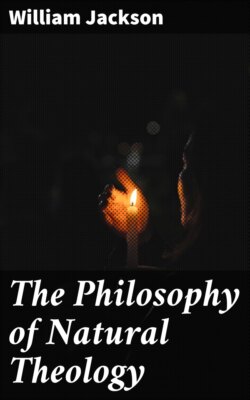Читать книгу The Philosophy of Natural Theology - William Jackson T. - Страница 9
На сайте Литреса книга снята с продажи.
C.—ON SPECIAL PLEADING IN HISTORY AND MORALS.
ОглавлениеA few emphatic sentences from Lord Macaulay's strictures on historical special pleading will repay perusal:—"This species of misrepresentation abounds in the most valuable works of modern historians. Herodotus tells his story like a slovenly witness, who, heated by partialities and prejudices, unacquainted with the established rules of evidence, and uninstructed as to the obligations of his oath, confounds what he imagines with what he has seen and heard, and brings out facts, reports, conjectures, and fancies in one mass. Hume is an accomplished advocate. Without positively asserting much more than he can prove, he gives prominence to all the circumstances which support his case; he glides lightly over those which are unfavourable to it; his own witnesses are applauded and encouraged; the statements which seem to throw discredit on them are controverted; the contradictions into which they fall are explained away; a clear and connected abstract of their evidence is given. Everything that is offered on the other side is scrutinised with the utmost severity; every suspicious circumstance is a ground for comment and invective; what cannot be denied is extenuated, or passed by without notice; concessions even are sometimes made; but this insidious candour only increases the effect of the vast mass of sophistry.
"We have mentioned Hume as the ablest and most popular writer of his class; but the charge which we have brought against him is one to which all our most distinguished historians are in some degree obnoxious. Gibbon, in particular, deserves very severe censure."—Macaulay's Miscellaneous Writings—History.
The reader may very advantageously carry along with him the above quoted just remarks, if he has occasion to travel into Hume's sceptical writings. Respecting these, where every feature of the author's character appears with intensified distinctness of expression, it is not too much to say that their influence, which had suffered suspended animation,[10] is now felt in almost every cultivated circle in Europe. Checked for a time under the empire of Kant and his successors, it has been revived by the German Darwinists (so-called), who are bent on evolving all that can be got from the theory of Evolution. Comte speaks of Hume as his own master—an intellectual debt all the more readily acknowledged, because Hume's treatment of most subjects leans towards the French, rather than the Teutonic, side of English speculation. The master's influence over numbers who, without being Comte's disciples, are addicted to thinking Positively upon questions connected with Mind and Morality, was never greater than at present.
Here, therefore, the disciplined inquirer will obtain a prolific field of discovery, if he wishes to convince himself how little originality pervades the set of opinions just now in fashion.
But the student of Hume ought surely to be a disciplined inquirer. Many senior residents at our Universities will, therefore, join me in regretting that his sceptical treatises should be so commonly found in the hands of very young men. So far as such readers are concerned, it does not much signify whether Hume's fallacies are due to onesidedness of intellect or (as has been said by a critic, once himself a doubter) whether he was influenced "by vanity, appetite, and the ambition of forming a sect of arguescents." An opinion scarcely libellous, considering what Hume has said respecting the validity of his own paradoxes. However this may appear, the fallacies remain fallacies, and are less easy of detection than they would have been were their author a systematic thinker, instead of a philosophical dilletante. Under any circumstances, it is not every aspirant to the "Round Table" for whom the quest after secret spells is fitted. The youthful knight has his own ward to keep, and needs help—not hindrance, much less betrayal—inasmuch as:—
